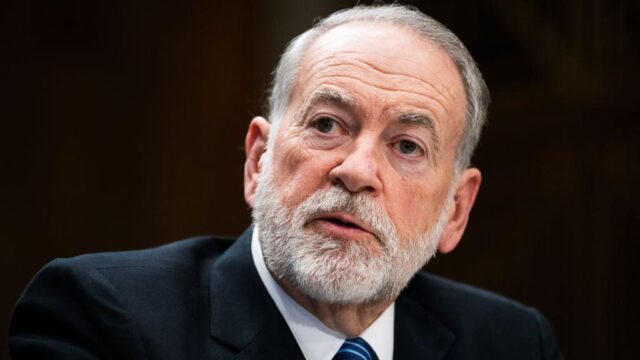
In a move both celebrated and criticized across political lines, former Arkansas Governor and evangelical leader Mike Huckabee has been officially confirmed as the new U.S. ambassador to Israel. The Senate voted 53 to 46 to approve his nomination on Wednesday, with the vote falling largely along party lines. Only one Democrat, Senator John Fetterman, broke ranks to support the confirmation.
A Longtime Ally of Israel
Huckabee, a former Republican presidential candidate and longtime conservative talk show host, is a fervent supporter of Israel and an outspoken backer of Jewish settlements in the West Bank—territories widely considered illegal under international law, although Israel disputes this classification.
“This is a great day for the Israeli-American alliance,” said Israeli Prime Minister Benjamin Netanyahu, who praised Huckabee as a “dear friend” in a post on X (formerly Twitter). Israeli Foreign Minister Gideon Sa’ar also welcomed the appointment, saying it would “strengthen the unbreakable bond between our nations.”
A Divisive Nomination
Despite cheers from the Israeli government and U.S. conservatives, Huckabee’s confirmation was not without fierce opposition. Democratic lawmakers have voiced deep concern over his past inflammatory remarks, particularly regarding the Israeli-Palestinian conflict. In a 2017 press conference, Huckabee stated, “There is no such thing as a Palestinian,” a comment that drew widespread condemnation at the time and resurfaced during his confirmation process.
Representative Jerry Nadler (D-NY), one of the most vocal critics, labeled Huckabee “woefully unfit” for the role and accused him of engaging in “brazen denial of the existence of the Palestinian people.”
Others pointed to Huckabee’s past support for the annexation of the occupied West Bank and questioned whether he could represent U.S. interests in a balanced way during an increasingly volatile period in the Middle East.
Calming the Senate
In an effort to secure confirmation, Huckabee dialed back several of his more hardline views during Senate questioning. He pledged to follow President Trump’s foreign policy objectives, not his personal beliefs, and rejected claims that he supported the mass expulsion of Palestinians from the region.
“I will carry out the president’s priorities,” Huckabee told the Senate Foreign Relations Committee. “My role is to serve American interests, ensure Israeli security, and support peace efforts where possible.”
A Delicate Moment in the Region
Huckabee assumes the ambassador role during one of the most turbulent periods in the region in recent years. The war in Gaza rages on with no clear path to a ceasefire. Hostage negotiations have stalled, and political tensions across Israel, Gaza, and the West Bank are at a boiling point.
Netanyahu recently returned from a high-profile visit to Washington, where he stood beside President Trump during a press conference announcing potential direct talks with Iran and warming remarks about Turkey’s President Erdogan—both of whom are considered regional adversaries by Israel.
Trump’s Endorsement
President Trump was characteristically candid when asked about Huckabee’s appointment.
“He’s going to bring home the bacon—even though bacon isn’t too big in Israel. I had to clear that up,” Trump joked during a press briefing in the Oval Office.
Despite the humor, the administration remains firm in its choice. The White House sees Huckabee as a symbolic and strategic figurehead who will reinforce the current U.S. posture toward the Middle East—strongly pro-Israel, skeptical of Iran, and firm on national security.
Looking Ahead
Huckabee’s confirmation adds another layer to the reshaping of U.S. foreign policy under Trump’s second term. With a background rooted more in faith and media than in diplomacy, he now faces the complex task of navigating an increasingly fractured region and representing U.S. interests while balancing his deeply personal convictions.
For many, the question remains: Can Mike Huckabee serve as a unifying diplomat—or will his appointment deepen already entrenched divisions in the region?



